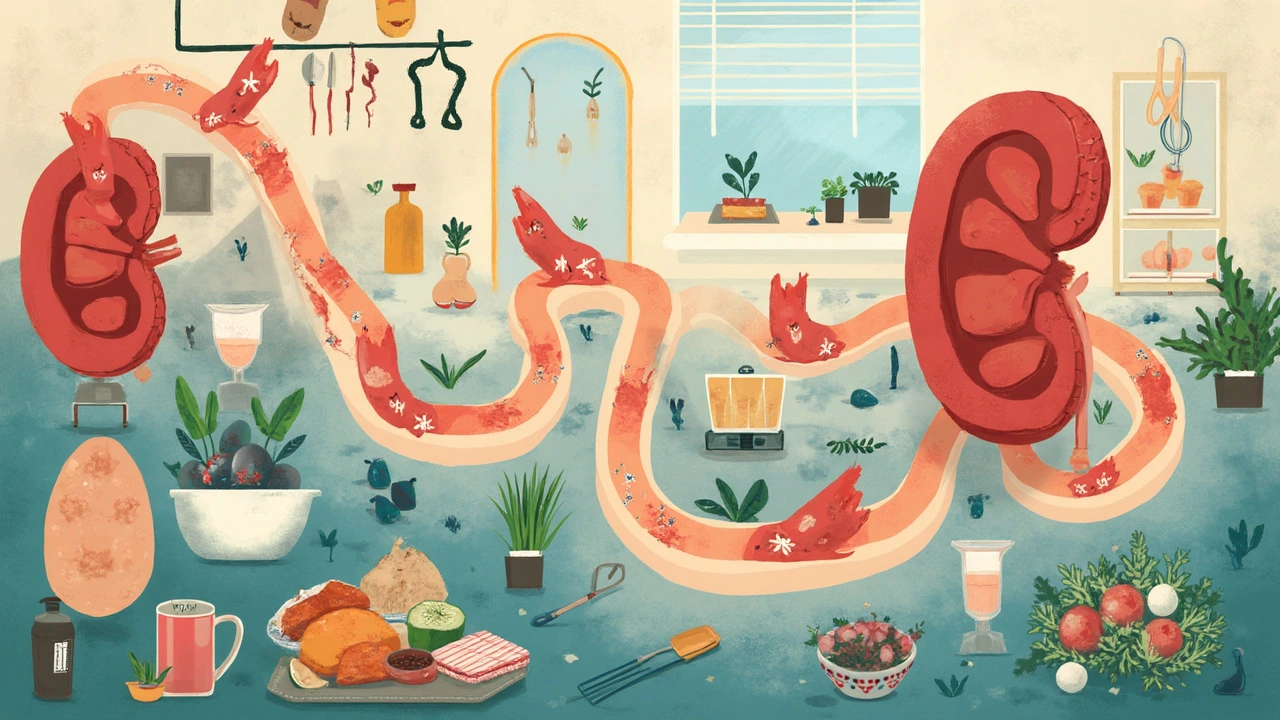Kidney Disease – What It Is and How to Keep Your Kidneys Working
If you’ve ever heard the term “kidney disease” and felt confused, you’re not alone. Kidneys filter waste, balance fluids, and help control blood pressure. When they stop working well, waste builds up and health problems start to appear. This guide breaks down the basics, tells you what to look for, and gives simple habits to protect your kidneys.
Common Types and Main Causes
There are two big groups of kidney disease you’ll run into most often:
- Acute kidney injury (AKI) – a sudden drop in kidney function that can happen after dehydration, an infection, or certain medicines.
- Chronic kidney disease (CKD) – a slow loss of kidney function over months or years. Most people with CKD have diabetes or high blood pressure.
Other frequent causes include:
- Polycystic kidney disease – inherited cysts that grow and damage tissue.
- Glomerulonephritis – inflammation of the tiny filtering units.
- Kidney stones or blockages that raise pressure inside the organ.
Knowing the cause helps you and your doctor plan the right treatment, whether that means medication, diet changes, or a procedure.
Signs You Shouldn't Ignore
Kidney disease can sneak up on you. Early signs are often mild, but they’re worth checking out:
- Swelling in ankles, feet, or around the eyes.
- Fatigue or feeling unusually weak.
- Changes in urine – more often, less often, foamy, or dark‑brown.
- Persistent itching, especially at night.
- High blood pressure that’s hard to control.
If you notice any of these, talk to a doctor. A simple blood test (creatinine) and urine test can tell if your kidneys are struggling.
Early detection makes a big difference. When CKD is caught before stage 3, lifestyle tweaks can slow the decline dramatically.
Practical Steps to Support Kidney Health
You don’t need a complicated plan. Here are a few everyday habits that protect kidneys:
- Watch your sugar. High blood sugar damages tiny blood vessels in the kidneys. Keep carbs in check and aim for steady levels.
- Control blood pressure. Aim for under 130/80 mm Hg. Salt is a big culprit, so limit processed foods and add less table salt.
- Stay hydrated, but don’t overdo it. About 8 cups a day is enough for most adults. Too much water can strain kidneys, especially if you have heart problems.
- Choose kidney‑friendly protein. Lean meat, fish, beans, and tofu are good. Too much protein can add extra work for kidneys.
- Avoid harmful meds when possible. NSAIDs (ibuprofen, naproxen) and some antibiotics can hurt kidneys if used a lot. Use them only when needed.
Regular check‑ups are key. If you have diabetes or high blood pressure, get kidney function tests at least once a year.
Remember, kidneys are resilient. Small daily choices add up, and catching problems early gives you a better chance to stay healthy.
Got more questions about kidney disease? Browse our articles below for deeper dives on specific topics, medication safety, and diet tips tailored to different stages of kidney health.
Salmonella's Connection to Kidney Disease: What You Need to Know
Mar, 10 2025
Salmonella, a common cause of foodborne illness, can have unexpected impacts on kidney health. While most associate salmonella with upset stomachs, recurring infections may increase the risk of kidney disease. Understanding this connection is key to preventing serious health issues. Safe food handling and awareness could play significant roles in protecting kidney health. Delving into these aspects helps reveal the unseen links between diet, bacteria, and disease.
Read Article→
